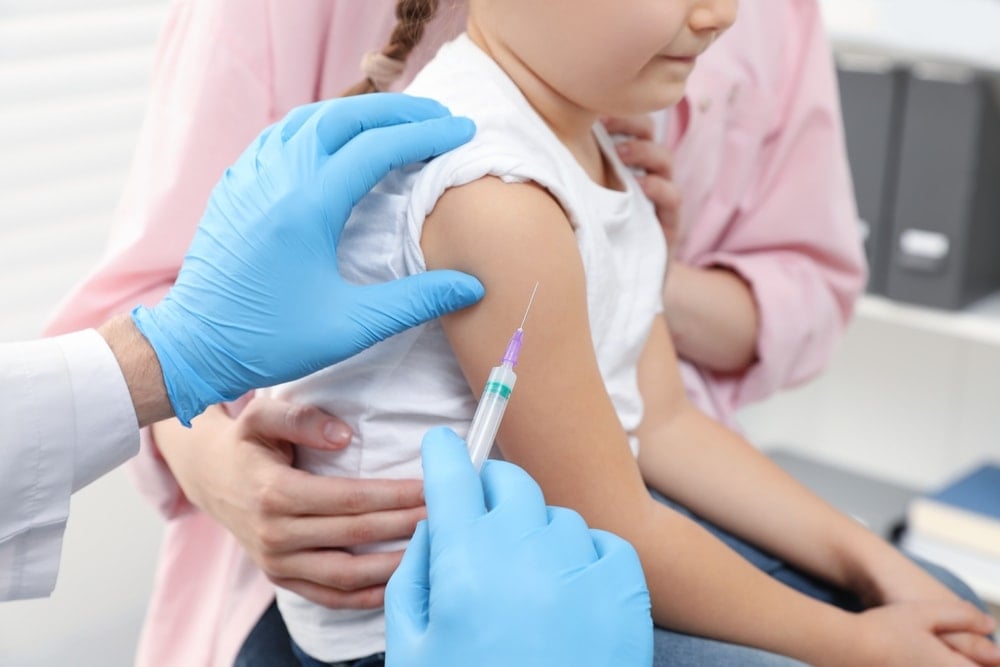Vaccine refusal is on the rise: Public health is at risk!

Public Health Expert Prof. Dr. Nur Baran Aksakal emphasized that the decreasing vaccine confidence and increasing vaccine rejection on a global scale in recent years pose serious risks to public health, and that this situation is becoming even more complicated due to the influence of unfounded claims that are based on hearsay rather than scientific evidence and spread rapidly on social media.
Prof. Dr. Aksakal said, “Immunization is a method that strengthens the immune system to protect individuals against diseases. Immunization is divided into two: natural and acquired: Natural immunity develops after a disease is experienced, while acquired immunity is gained through vaccines. Vaccines are the most common acquired immunization method and play a vital role in the prevention of infectious diseases.”
Prof. Dr. Aksakal, who stated that the increase in vaccine hesitancy and refusal, especially in childhood vaccinations, poses a great threat to public health, said, “The increase in vaccine refusal should not be considered only as an individual choice. This situation can weaken community immunity and cause preventable diseases such as measles and whooping cough to spread again and increase the risk of epidemics. While great losses were experienced due to these diseases in the past, these diseases have been largely brought under control thanks to vaccines. However, lack of information, misdirection and increased trust in unscientific sources are shaking the faith in vaccines.”

According to the World Health Organization, vaccination programs save millions of lives every year, Prof. Dr. Aksakal said, “Childhood vaccinations have largely eliminated deadly diseases such as measles, polio and diphtheria. Vaccines administered during pregnancy play an important role in reducing neonatal deaths by protecting the health of both mother and baby. Proper immunization programs prevent epidemics by protecting not only individuals but also the entire society.
"In order to protect public health and prevent possible epidemics, it is of great importance to increase health literacy covering all segments of society and to provide accurate information in the light of scientific facts. In this direction, a roadmap specific to our country should be determined and a comprehensive public awareness campaign should be carried out. In order to eliminate the lack of information on vaccination and to control the increasing cases of vaccine refusal, scientists, health authorities, educational institutions and the media should act in cooperation; transparent and scientific communication strategies that will create an environment of trust in society should be implemented," he said.

Prof. Dr. Aksakal said that vaccines not only protect individuals against infections but also support community immunity, and that vaccines are of vital importance, especially for infants, the elderly and individuals with chronic diseases who have weak immune systems.
Prof. Dr. Aksakal said, “Our most powerful weapon in the fight against pandemics and epidemics is to stop the spread of infectious diseases by ensuring that society is vaccinated. The childhood vaccination calendar in Türkiye is a world-class and comprehensive program. This program, offered free of charge by the Ministry of Health, protects individuals against many diseases from pneumonia to hepatitis, diphtheria to whooping cough during infancy and childhood, thus ensuring public health.
However, in order to sustain this success, awareness-raising efforts that will prevent vaccine refusal from reaching critical levels need to be strengthened. Accessing accurate information based on scientific facts is the foundation of a healthy society. Vaccines save lives, while vaccine refusal opens the door to epidemics. I would like to remind you once again that vaccines are indispensable for individual and social health, and I invite all segments of society to be conscious about vaccinations,” he said.

Prof. Dr. Aksakal said, “One of the most common misconceptions in society is the belief that vaccines cause diseases. However, vaccines do not cause diseases; on the contrary, they prepare the body for diseases by training the immune system. Although some vaccines cannot completely prevent disease, they can reduce the severity and duration of the course of the disease and prevent deaths. Another common misconception is that the long-term side effects of vaccines are unknown.
However, vaccines are approved and put into use after years of clinical research. At the same time, vaccines are among the most stringently controlled medical products in the world. They undergo safety tests at many stages from production to application. Research conducted to date has shown that vaccines are extremely effective and safe in preventing diseases. The fact that diseases such as polio have almost completely disappeared is proof of the success of vaccines," he said.

Prof. Dr. Aksakal said, “The latest vaccine technologies include protein vaccines that create immunity using harmless parts of disease-causing microbes, vaccines produced in special cells in the laboratory, advanced vaccines designed to better introduce microbes to the immune system from parts on their outer surfaces, treatments that provide direct protective antibodies against diseases such as monoclonal antibodies, and multi-purpose vaccines that provide protection against more than one pathogen at the same time. These new technologies aim to provide stronger and safer protection against various infectious diseases.”
SÖZCÜ



